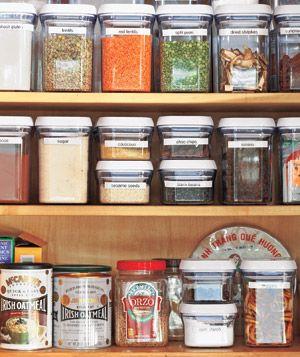Gut Microbiome Test
This month I thought I’d talk to you about one of the types of functional medicine testing that I do – GI map to assess your gut microbiome. This is also referred to as a Comprehensive Digestive Stool Analysis (CDSA) or Complete Microbiome Analysis test. This is a test that quantifies gut bacteria, fungi, viruses, and parasites using qPCR. It also gives information about:
Specific digestive markers
Pancreatic elastase, steatocrit, anti gliadin IgA (gluten sensitivity marker), Beta glucuronidase (high levels may indicate unfavourable metabolic changes in the colon), occult blood, SIgA (immune response), calprotectin (inflammation), Zonulin (leaky gut marker).
Opportunistic bacteria overgrowth
Bacteria that can be problematic if overgrown in the GI tract.
Normal commensal bacteria
What good bacteria you have or is missing.
Pathogens
Bacterial, parasitic, viral, worms, fungi and yeasts.
Health conditions
Calprotectin is a biomarker that assesses inflammation in the gastrointestinal tract. This test helps to distinguish between IBD and IBS.
The reason that you might want to have this stool test done, is when you are presenting with digestive issues that do not respond to ‘normal’ treatment. Or, when looking at your history during a consultation, there does not seem to be any specific underlying cause; especially if you have already been to see your GP or gastroenterologist, and they haven't found anything wrong or you've been diagnosed with irritable bowel syndrome. A diagnosis of IBS doesn't tell you what is making your bowel irritable so you may wish to go this next step, a microbiome test.
The gut contains approximately 2kg of microorganisms
Just as your fingerprint is unique to you, so is your gut flora. Your gut flora, or microbiome, is the collection of bacteria that live in your gut. These bacteria have many useful functions, including absorbing and producing nutrients, maintaining the gut lining to keep out toxins and unwelcome microorganisms, providing immunity, and producing mood-regulating hormones.
The microbiome can be disrupted by a number of lifestyle and environmental factors, including medications and antibiotics, chronic constipation, stress, and diet. When the microbiome is out of balance, it can lead to a number of health problems, including gastrointestinal disorders, inflammatory diseases, and even depression. Fortunately, there are a number of ways to maintain a healthy gut microbiome, including eating a diverse diet, potentially fermented foods and fibre rich foods.
Gut Microbiome Test
A comprehensive microbiome test provides you with a more detailed profile of what is happening within your digestive system such as:
- Microbiome imbalance
- Possible inflammatory bowel disease
- Parasites or infections
- Pathogenic bacteria
- Leaky gut
It requires you to provide a stool sample, while you have maintained your usual diet. Your test results will take about 2 weeks for analysis, and once done a full report will come through to help assess your gut health.
Any imbalances in your digestive tract can contribute to issues such as:
- Food intolerances
- Leaky gut
- Poor nutrient absorption
- Irritable bowel symptoms
- Other health issues – eczema, psoriasis, mood issues
Important gut microbiome data
There are several important markers that I look for when you have done a CDSA. These are the Digestive markers on the test results
Calprotectin – You produce this marker when there is inflammation. This can be due to food allergies/intolerances, crohn's disease or ulcerative colitis, bacterial infection or even certain medications.
Secretory IgA – This is the primary immunoglobulin in the intestinal mucosa. It represents a “first line of defense” in response to antigens and pathogens in the GI and respiratory tracts. In addition to protecting against pathogens, SIgA plays a major role in helping to maintain balance in the microbiome and protecting against exposure to food-derived antigens.
Zonulin – This is a protein that opens intercellular tight junctions in the gut lining (the connections between epithelial cells that make up the gastrointestinal lining). Zonulin increases intestinal permeability in the jejunum and ileum and is considered a biomarker for barrier permeability.
Beta glucuronidase – High levels of faecal beta-glucuronidase can indicate unfavourable metabolic changes in the colon. Beta-glucuronidase may indicate dysbiosis and interference with Phase II detoxification involving glucuronidation.
Pancreatic elastase 1– Elastase 1 is a digestive enzyme secreted exclusively by the pancreas, giving a direct indication of pancreatic function.
Steatocrit – Faecal fats are normally emulsified by bile salts and absorbed in the small intestines. High levels of fat in the stool may be an indication of maldigestion, malabsorption, or steatorrhea.
Anti-gliadin IgA – Gliadin is a component of gluten, the protein found in wheat and other field grass grains such as barley, malt, and rye. The presence of fecal anti- gliadin antibodies can indicate an immune response (in the gut) to gluten in the diet.
Bacteria – you have a naturally occurring ecosystem of bacteria, that when kept in balance, works well. You absorb the nutrients that you need and eliminate that which you do not need. This balance can easily be upset, when your diet is inadequate, have been exposed to chemicals, eaten bad food (not cooked or washed properly or, been overseas. This imbalance disturbs the ‘status quo’, disrupting your normal intestinal function.
Worms – you can get worms from eating raw meat or, meat that has not been cooked properly, drinking contaminated water, walking barefoot on contaminated soil, poor hygiene, etc. You may have symptoms such as loss of appetite, bloating, nausea, abdominal pain.
Yeast – if you have a yeast imbalance within your digestive system, this can cause all sorts of issues such as poor nutrient absorption.
Parasites – you may have acquired these by drinking contaminated water, food grown in contaminated soil, poor hygiene. Blastocystis, dientamoeba and giardia are the most prevalent parasites I see come up. Symptoms experienced can be diarrhoea, constipation, hives, itching, fatigue, etc.
Normal gut bacteria – lactobacillus spp., bifidobacterium spp, clostridium spp, esherichia spp., Bacteroides fragilis, Enterococcus spp. These are the bacteria normally found in your intestines, all living in perfect harmony. It is when this balance is disrupted, that you begin to experience issues with your digestion and general health. The microbiome test will identify which specific probiotics for gut health you need.
If you've been suffering digestive symptoms and haven't got to the bottom of why then this test will likely give you some answers. We can then come up with a plan to rebalance your microbiome and get on top of your symptoms.
See if my Gut Fix Program is right for you. This covers my 7 steps to rebalance your microbiome through individual nutrition consults. Step 2 is testing which includes microbiome stool tests (with test kit sent to your home), SIBO testing and food sensitivity tests. Testing isn't always necessary but becomes more relevant when other options like elimination diets haven't brought results.
Building beneficial bacteria in the human gut is step 6 in the Gut Fix Program and often overlooked. Restoring your microbiome is vital for long-term gut health. When we have your microbiome test results we find out what food and lifestyle changes are necessary to restore your beneficial bacteria and reduce gut issues.


